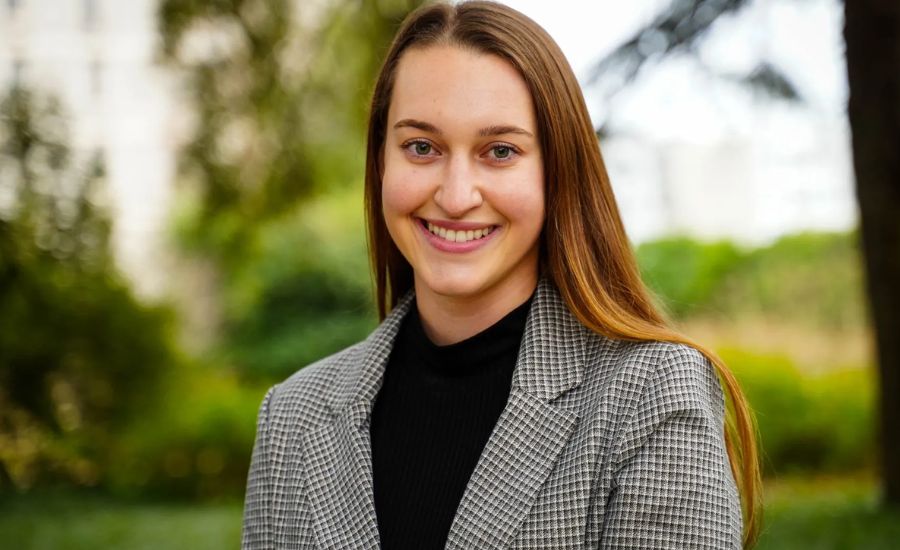Introduction To 70 Isrw Sg Psych Performance Erin Siebert
The seventieth Intelligence, Surveillance, and Reconnaissance Wing (ISRW) stands as a frontrunner in military intelligence, regarded for its modern approach to operational readiness. A vital aspect of this task is the Specialist Group (SG) in Psychological Performance, which performs a essential position in addressing the intellectual health and resilience of personnel engaged in high-stress intelligence activities.
This specialized branch specializes in fostering intellectual readiness, improving emotional resilience, and promoting the general nicely-being of provider contributors. Their efforts ensure that employees are mentally geared up to handle the challenges of complicated and annoying operations in the intelligence area.
A key contributor to this initiative is Erin Siebert, a committed professional in mental performance. Siebert has made extensive strides in advancing intellectual fitness packages and resilience schooling within the 70 ISRW/SG. Through her understanding and dedication, she has helped increase strategies that empower service members to keep height performance at the same time as navigating the stresses of high-stakes missions.
By integrating mental resilience into its center practices, the 70 ISRW/SG guarantees that carrier members no longer best perform efficaciously of their roles but additionally preserve lengthy-term mental health and operational efficiency. This approach displays the wing’s commitment to assisting its employees in every measurement in their venture-crucial obligations.
Understanding the 70 ISRW/SG Psychological Performance and Erin Siebert’s Role

1. The seventieth Intelligence, Surveillance, and Reconnaissance Wing (ISRW): A Core Component of National Security
The seventieth Intelligence, Surveillance, and Reconnaissance Wing (ISRW) is a vital entity in the U.S. Air Force, specializing in intelligence series, analysis, and dissemination to aid countrywide protection missions. Among its specialized units, the Specialist Group (SG) sticks out for its recognition on mental performance, which ensures that personnel remain mentally resilient and assignment-prepared beneath the pressures of army intelligence operations.
1.2 The Role of Psychological Performance in Military Intelligence
Intelligence operations are demanding and require exceptional mental clarity and resilience. The psychological performance programs within the 70 ISRW/SG are designed to enhance cognitive function, improve emotional regulation, and reduce stress. These programs not only enable service members to perform efficiently under pressure but also support long-term mental well-being, ensuring consistent operational success.
1.3 Erin Siebert’s Contribution to Psychological Performance
Erin Siebert, a prominent expert within the 70 ISRW/SG, has been instrumental in developing and advancing psychological performance initiatives. Her work specializes in equipping employees with tools to beautify resilience and maintain attention in high-stakes environments. Through her information, Siebert has added progressive methods to deal with mental readiness, fostering each man or woman and team effectiveness inside the disturbing global of army intelligence.
2. Why Psychological Performance Matters in Military Intelligence
2.1 Building Mental Resilience in High-Stress Situations
Military intelligence employees face excessive intellectual needs that can cause stress and burnout. Psychological overall performance programs empower them to control these challenges effectively, allowing sustained awareness and emotional stability at some point of important operations.
2.2 Enhancing Decision-Making Under Pressure
Quick, sound selections are essential in intelligence work, wherein consequences regularly hinge on cut up-2d picks. Programs advanced by way of experts like Erin Siebert comprise physical games to sharpen cognitive agility and choice-making underneath excessive-strain conditions.
2.Three Preventing Emotional Fatigue and Burnout
Given the sensitive and extreme nature of intelligence operations, emotional exhaustion is a considerable risk. Strategies together with mindfulness, pressure regulation, and emotional resilience training are key additives of the psychological performance framework, helping to mitigate those dangers.
3. Key Features of the Psychological Performance Program
3.1 Stress Management Techniques
Service members learn methods such as structured breathing exercises and mindfulness to regulate stress effectively, ensuring calm and focus in challenging situations.
3.2 Cognitive Enhancement Exercises
These exercises strengthen problem-solving, memory, and attention, which are critical for analyzing complex intelligence data swiftly and accurately.
3.3 Emotional Resilience Training
Personnel gain insights into managing emotional responses, enabling them to maintain composure and effectiveness during unpredictable or high-pressure scenarios.
3.4 Peer and Professional Support Networks
The program emphasizes collaboration and mentorship, offering personnel access to counselors and peer support systems to address challenges collectively.
4. Real-World Benefits of Psychological Performance Programs
4.1 Boosting Operational Readiness
Mentally resilient personnel are better prepared for the demands of intelligence work, resulting in enhanced mission performance and reduced errors.
4.2 Strengthening Team Collaboration
Stress management and resilience training foster better communication and cooperation, improving overall team dynamics within intelligence units.
4.3 Safeguarding Long-Term Mental Health
By proactively addressing stress and emotional challenges, the program helps prevent long-term psychological issues, promoting enduring mental health for military operatives.
4.4 Maintaining Mission Continuity
With a focus on quick recovery from challenging assignments, the program ensures that personnel remain operationally ready and effective.
5. Challenges in Implementing Psychological Performance Programs
5.1 Reducing Mental Health Stigma
Cultural barriers in military environments often discourage open discussions about mental health. Programs aim to normalize psychological training as part of professional development, fostering acceptance and participation.
5.2 Managing Time Constraints
With the fast-paced nature of intelligence work, integrating quick and efficient mental exercises into daily routines ensures accessibility without compromising operational demands.
5.3 Personalizing Program Delivery
Recognizing that individuals have unique needs, the program offers customizable options, ensuring tailored support for every service member.
5.4 Promoting Balanced Readiness
By emphasizing the equal importance of mental and physical fitness, the program advocates a holistic approach to operational preparedness.
6. Solutions to Overcome Challenges
6.1 Encouraging an Open Culture
Leaders like Erin Siebert advocate for transparency and openness about mental health, helping personnel view psychological performance as a key to professional success.
6.2 Flexible and Scalable Training Modules
The program includes short, impactful exercises that personnel can easily incorporate into their routines, accommodating their demanding schedules.
6.3 Tailored Support Plans
Customizable mental fitness plans ensure that every service member can benefit from resources aligned with their specific needs and challenges.
6.4 Promoting Unified Health Goals
The program integrates physical and mental health initiatives, emphasizing that both are essential for overall mission readiness.
7. The Future of Psychological Performance in Military Intelligence
7.1 Leveraging Advanced Technology
Emerging tools such as virtual reality and biofeedback offer new possibilities for realistic, high-stress training scenarios, enhancing preparation for real-world operations.
7.2 Expanding Research and Partnerships
Collaborating with civilian mental health experts and investing in cutting-edge research ensures the continued evolution of psychological performance strategies.
7.3 Broadening Accessibility
Efforts to make resources available online and through mobile apps empower personnel to access mental health tools whenever and wherever needed, further supporting their resilience and effectiveness.
The 70 ISRW/SG, with leaders like Erin Siebert at the forefront, exemplifies how a comprehensive focus on mental performance can enhance military intelligence operations and sustain long-term personnel well-being.
Understanding Psychological Performance and Its Importance
Psychological overall performance refers to an person’s capacity to keep attention, emotional balance, and powerful decision-making under challenging situations. This skill is especially crucial in excessive-stakes environments like the ones encountered through the Intelligence, Surveillance, and Reconnaissance Wing Specialist Group (ISRW/SG), where intellectual resilience directly impacts task fulfillment. Cultivating mental performance ensures people can adapt to severe situations with confidence and readability.
Defining Mental Resilience: Insights from Erin Siebert
Erin Siebert, a leading parent in psychological overall performance, defines mental resilience as the capability to get over setbacks while maintaining a superb mind-set. She emphasizes that constructing resilience entails regular practice, introspection, and learning pressure-management techniques. This resilience lets in specialists to preserve composure, assume seriously, and adapt to converting situations efficiently.
The Role of Emotional Intelligence in High-Pressure Environments
Emotional intelligence (EI), a core detail of mental performance, enhances an man or woman’s functionality to understand, understand, and manipulate emotions—their very own and others’. Erin Siebert highlights that EI is crucial for fostering teamwork, resolving conflicts, and maintaining effective verbal exchange in immoderate-pressure conditions. By leveraging EI, individuals can create cohesive environments wherein collaboration and cognizance thrive even below pressure.
Stress and Decision-Making: Managing Pressure for Optimal Performance
Stress can impair judgment, slow response instances, and result in cognitive overload, all of which might be negative in excessive-pressure situations. Erin Siebert’s method to psychological overall performance emphasizes equipping individuals with gear to mitigate strain correctly. Techniques together with mindfulness, respiration physical activities, and cognitive reframing are imperative to her schooling techniques. These equipment decorate mental clarity, permitting specialists to make informed choices quickly and with a bit of luck, even in disaster scenarios.
Enhancing Focus Through Psychological Strategies
To preserve height performance, Erin Siebert advocates for techniques like mindfulness, based workouts, and cognitive sports. Mindfulness practices assist individuals live gift and decrease distractions, at the same time as structured routines improve time control and productivity. Cognitive sporting events, such as memory demanding situations and interest drills, sharpen mental readability and beautify overall decision-making abilities. These strategies work collectively to build sustained awareness in dynamic, excessive-strain environments.
Integrating Psychological Performance into ISRW/SG Frameworks
Within the ISRW/SG, psychological performance principles are woven into training and operational strategies. These frameworks emphasize balancing mental well-being with technical skills. By focusing on resilience, emotional intelligence, and pressure management, personnel are organized to address the needs of high-stakes missions. This holistic method guarantees that individuals are both mentally and physically ready for complicated demanding situations.
Adaptability: A Cornerstone of Psychological Performance
In dynamic and unpredictable environments, adaptability is crucial for staying focused and responsive. Erin Siebert identifies adaptability as a cornerstone of intellectual resilience. Through situation-primarily based education and fostering intellectual flexibility, specialists discover ways to modify quick to transferring circumstances, preserving effectiveness irrespective of the demanding situations they face.
Visualization Techniques for Confidence and Preparedness
Visualization, a key tool in Erin Siebert’s technique, entails mentally rehearsing situations to build preparedness and self assurance. By envisioning ability demanding situations and responses, people can expect limitations, refine strategies, and give a boost to their hassle-fixing abilties. This proactive technique enhances performance under pressure, ensuring people are mentally equipped to navigate actual-international complexities.
Managing Anxiety in High-Stakes Situations
High-strain situations often cause anxiety, which can avoid performance. Erin Siebert recommends a aggregate of breathing sporting events, grounding strategies, and superb affirmations to fight anxiety successfully. These methods paintings together to regulate physiological responses, keep emotional stability, and instill a sense of calm and manage. By adopting those techniques, people can stay targeted and resilient, even in the face of big pressure.
The Role of Self-Awareness in Psychological Performance
Self-focus is essential to expertise personal strengths, weaknesses, and emotional triggers. Erin Siebert emphasizes the significance of regular reflection and seeking remarks to beautify this consciousness. By spotting their responses to pressure and leveraging their strengths, people could make knowledgeable choices and cope with challenges extra successfully. Self-attention now not only complements overall performance however also builds lengthy-term mental resilience.
Physical Health as a Pillar of Mental Resilience
The connection among physical fitness and psychological performance is undeniable. Erin Siebert underscores the importance of preserving a balanced food plan, ordinary workout, and enough sleep to optimize cognitive feature, emotional balance, and strain resilience. By prioritizing physical fitness, people create a sturdy basis for mental properly-being, making sure they’re prepared for the demands of high-pressure environments.
Leadership and Psychological Performance Principles
Leaders play a pivotal function in fostering resilience and properly-being inside groups. Erin Siebert emphasizes that leaders have to model high-quality behaviors, inspire open verbal exchange, and provide get right of entry to to intellectual health sources. By prioritizing the mental fitness of their teams, leaders create supportive environments in which employees experience empowered to deal with demanding situations and perform at their pleasant.
Work-Life Balance: Erin Siebert’s Recommendations
Maintaining a wholesome paintings-lifestyles balance is essential for long-term properly-being. Erin Siebert advises experts to set clear limitations, prioritize self-care, and have interaction in enjoyable personal activities. These practices save you burnout and make certain that people stay mentally and emotionally refreshed. By dedicating time to hobbies, rest, and meaningful relationships, specialists can recharge and sustain resilience in each their private and expert lives.
Summary:
Introduction
The 70th Intelligence, Surveillance, and Reconnaissance Wing (70 ISRW) is a pivotal entity in military intelligence, focusing on operational readiness. Within it, the Specialist Group (SG) emphasizes psychological performance to enhance mental resilience and overall well-being among personnel engaged in high-stress intelligence activities. Erin Siebert plays a crucial role in advancing these initiatives, promoting techniques and strategies to maintain optimal performance during complex missions.
Understanding Psychological Performance
Psychological performance involves the ability to maintain focus, emotional stability, and effective decision-making under stress. Within the 70 ISRW/SG, this concept is integrated into frameworks to address the unique demands of military intelligence.
Role of Erin Siebert
As a leading figure, Erin Siebert has developed programs to foster resilience, emotional regulation, and adaptability. Her initiatives include techniques such as mindfulness, breathing exercises, and visualization, which equip personnel with the mental tools to navigate high-pressure environments.
Why Psychological Performance Matters
- Mental Resilience: Helps service members recover from setbacks while maintaining focus.
- Enhanced Decision-Making: Strengthens cognitive agility to make quick, sound decisions in high-pressure situations.
- Prevention of Burnout: Reduces emotional fatigue through stress regulation techniques.
Key Features of Psychological Performance Programs
- Stress Management: Techniques like mindfulness and breathing exercises to ensure calmness.
- Cognitive Enhancement: Memory and problem-solving exercises to improve analytical capabilities.
- Emotional Resilience: Training to handle unpredictable situations.
- Support Networks: Access to counselors and peers for collaborative support.
Real-World Benefits
- Improved operational readiness and reduced errors.
- Enhanced teamwork and collaboration.
- Safeguarded long-term mental health.
- Continued mission continuity and effectiveness.
Challenges and Solutions
- Mental Health Stigma: Programs normalize psychological training as professional development.
- Time Constraints: Flexible modules accommodate demanding schedules.
- Customization: Tailored plans cater to individual needs.
- Balanced Readiness: Emphasis on integrating mental and physical fitness.
Future of Psychological Performance
- Use of advanced technology, like virtual reality, for realistic training.
- Partnerships with civilian experts to enhance mental health resources.
- Broader accessibility through online tools and apps.
Additional Insights
- Emotional Intelligence: Essential for teamwork, communication, and conflict resolution.
- Adaptability: Prepares personnel to adjust quickly to dynamic environments.
- Leadership: Leaders are encouraged to model resilience and provide mental health resources.
- Work-Life Balance: Clear boundaries and self-care are vital for sustainable performance.
Conclusion
The 70 ISRW/SG, under the guidance of experts like Erin Siebert, demonstrates how psychological performance training strengthens operational efficiency, mental resilience, and long-term well-being. This approach equips military intelligence personnel to excel in high-stakes scenarios while safeguarding their mental health.
For more Information About blog visit Shortthink













Leave a Reply